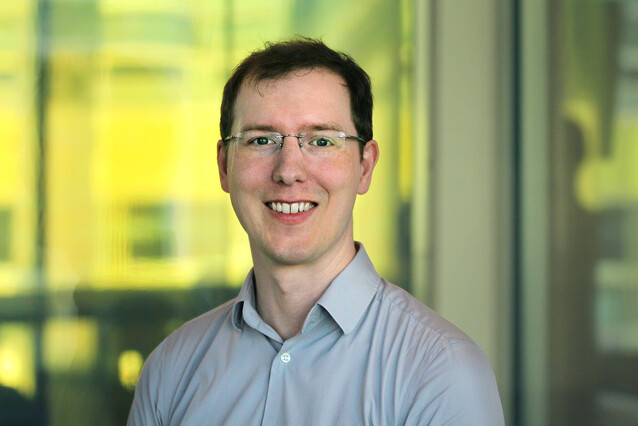2022 Robert Koch Postdoc Award in Immunology for Moritz Gaidt
The Robert Koch Foundation presented the 2022 Robert Koch Postdoc Award in the field of Immunology to Moritz Gaidt, who joined the IMP as a group leader last February. The award was given for his postdoctoral work with Veit Hornung at LMU Munich and Russel Vance at UC Berkeley. An award ceremony took place in Berlin on 11 November. In the leadup to the event, we interviewed Moritz Gaidt about his postdoc experience, the transition to being a PI - and what postdoc applicants can expect from doing research in his lab.
Moritz, how do you feel about being recognised by the Robert Koch Postdoc Award?
The award is a great recognition of my postdoctoral work. I am very grateful to the Robert Koch Foundation, the German Society for Immunology for nominating me and especially my mentors Russell Vance and Veit Hornung. Science is always a team effort, and without their support, and the help of brilliant lab mates and collaborators, I would not have been able to conduct the award-winning work.
Can you briefly describe the work that led to your award?
As a postdoc award, it recognises my work in Veit Hornung's lab at the LMU in Munich, and with Russel Vance at UC Berkeley. In Veit Hornung's lab I used a new in vitro system called BLaER1 to genetically dissect inflammatory pathways in human monocytes, a type of white blood cell. I wanted to know how the innate immune system detects microbial components and how this triggers a "pathogen alert" to other cells of the immune system. When I joined the lab of Russel Vance at Berkeley, I used this system to uncover an unknown pathway in human monocytes that recognise pathogens. And very surprisingly, this novel pathway does not recognise components of microbes like other immune sensing pathways. Instead, it recognises the molecular activities of pathogens. This is a tremendous advantage for the immune system, because only virulent pathogens have these activities while harmless microbes do not. So, a “pathogen alert” is only triggered upon sensing of real pathogens.
How did your postdoc experience diverge between the two labs?
My first postdoc was a short two years in the same lab where I did my PhD work. So, I didn't feel much like a postdoc, at times more like a senior PhD student. This changed after moving to the US in 2018, where I entered a completely new environment, a new lab, a new country. And I enjoyed the experience very much. Berkeley is quite a large university by itself, but then the over-all bay area is just an incredible scientific hub. There is Berkeley, UCSF, Stanford, and there is an incredible biotech scene. A concentration of science like this always leads to more opportunities to share resources, knowledge, and expertise.
Now you advanced from postdoc to PI - and you are looking for postdocs to join your lab here at the Vienna BioCenter. What can the location offer?
I very much enjoy the IMP and the wider Vienna BioCenter. The infrastructure is just great and the quality of the research here is en par with the top places in the US. This alone makes it one of the best places to do research - also for postdocs - in Europe. For people from this region or nearby we may also be closer to home.
And in turn, what is the single most important thing you are looking for in a postdoc applicant for your lab?
I think any postdoc needs to be curious about the science they want to do. The curiosity to understand how things work is the single most important trait of a scientist. In other words, they have to be scientists at heart.
About the Robert Koch Postdoc Awards
Three Robert Koch Postdoc Awards are presented annually by the Robert Koch Foundation in cooperation with the German Societies for Hygiene and Microbiology, Immunology, and Virology. The awards are given in recognition of outstanding post-doctoral work to scientists in these respective areas.
